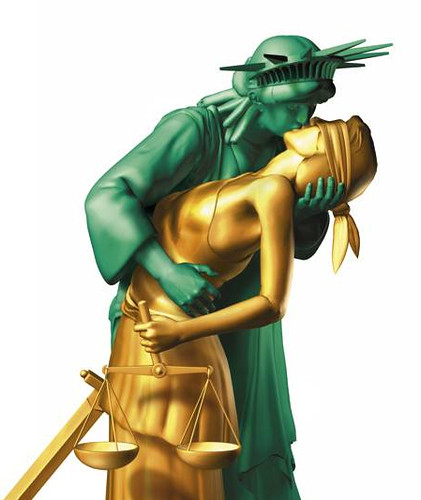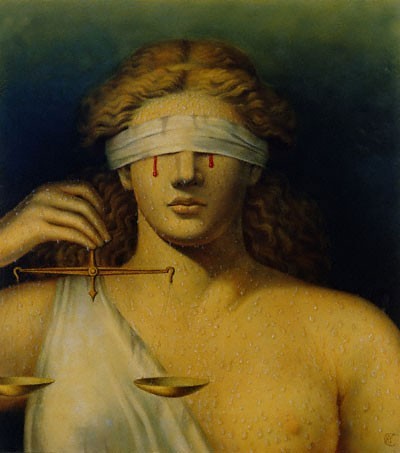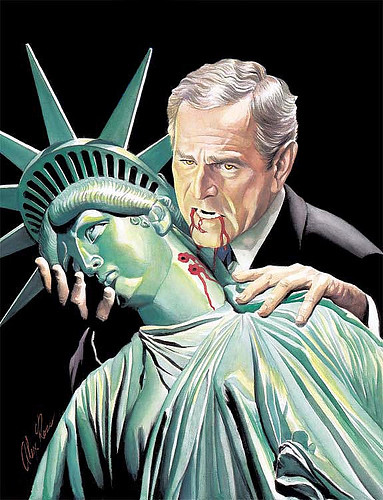More often than not, the term "Sufi" invokes images of twirling Dervishes lost in ecstasy, strange people who engage in exotic practices that seem antithetical to Islamic legal traditions, or apolitical mystics fixated in meditation. In addition to the misconception that Sufism is inherently heterodox, perhaps the greatest misconception is that it is passive and apathetic towards Jihad. In reality, nothing could be further from the truth.
First and foremost, it is necessary to establish the orthodoxy of Sufism by pointing out the sheer number of eminent scholars who have been Sufi.
Amongst the Hanafi Ulema, we have ‘Ali Qari (d. 1606)1, ‘Abd al-Ghaffar Nabulsi (1641-1733)2, Shaykh Ahmad Sirhindi (1564-1624), and Shah Waliullah (1702-1763).
From the Malikis, the following Ulema were Sufi: Ibn ‘Ata’ Illah al-Iskandari (d. 1309)3 and Ibn ‘Ajiba (1747-1809)4.
The Hanbalis had ‘Abd al-Rahman ibn Jawzi (1114-1201)5, ‘Abd al-Karim Jili (1365-1428) who was the great-grandson of ‘Abd al-Qadir al-Jilani 6, and Ibn Rajab7. Mohiyuddin Ibn Arabi was of the Dhahiri madhab.
The Shafi’i madhab too, had a plethora of Sufis as some of its most prestigious scholars:
Abul Qasim al-Junayd (d. 910)8, Hakim Tirmidhi (d. 320)9, Abu ‘Ali Daqqaq (d. AH 405)10, Abu ‘Abd al-Rahman Sulami (936 – 1021)11 , Imam Ghazzali (1058 -1111)12, ‘Abd al-Wahhab Sha’rani (1493- 1565)13, Abul Qasim Qushayri (986 – 1072)14, Imam ‘Izz ibn ‘Abd al-Salam (1181-1262) ( In addition to his outstanding works in Islamic law, he is also known for his harshness with Muslim rulers who did not fight against the Crusaders vigorously)15, Imam Nawawi (1233 – 1277)16, and Imam Suyuti (1445 – 1505)17.
It should also be noted that even Muhammad Haya al-Sindi, the hadith teacher of Muhammad ibn ‘Abd al-Wahhab who introduced him to the works of Ibn Taymeeyah*(There is much debate over whether or not Ibn Taymeeyah was a Sufi of the Qadiri order), was from the Naqshbandi tariqa. Interestingly enough, the great Indian scholar and Sufi, Shah Waliullah Dilhavi, was a student of another great Sufi scholar, Ibrahim al-Kurrani, who happened to also be the teacher of Muhammad Haya al-Sindi and Shaykh Yusuf who later lead a jihad against the Dutch in Indonesia.18 Aside from the select few of Sufi scholars that were briefly mentioned above, there are countless others who have not been mentioned. Although it does not give the subject justice, it should be clear that the roots of Sufism have always had its roots firmly entrenched in orthodoxy.
The second greatest misconception that people, including non-Muslims, have of Sufism is that it is flaccid in participating in issues pertaining to social justice and engaging in Jihad. History is a testament that not only is Sufism not opposed to Jihad, but rather, Sufis have been amongst the foremost leaders of Jihad.
Even the early Sufis were known for their fervent desire for engaging Jihad and seeking martyrdom. For example, Ibrahim ibn Adham (d. 778), was an early Sufi ascetic who was born into a life luxury which he abandoned in order to study the Sacred Sciences and later fought in jihad against the Byzantines.19 In fact, the very roots of the Sufi zawiya, a type of lodge, has its roots in the ribat. The ribat is a type of fortress that was often built along the ever expanding Islamic frontier. At these fortresses, Sufi shuyookh adapted their teachings of outward jihad in order to teach their disciples the science of inner jihad.20 2
During the Crusades, Sufis also participated in popular resistance against the Franks. The Battle of Mansura in Egypt included participants of the likes of Sheikh Abu Hassan ash-Shadhili, Sheikh Ibrahim Dessouki, and Sheikh al-Qannawwi. When Sultan Al Kamel of Egypt began negotiating with the Franks during the Fourth Crusade, Mohiyuddin Ibn Arabi scolded him by saying "You have no pride and Islam will not recognize the likes of you. Stand up and fight or we shall fight you as we fight them."
Even Imam Ghazzali castigated the Mameluke Sultans for failing to carry on the fight by giving them a similarly pernicious warning: "Either take up your sword for the sake of Allah and the rescue of your brothers in Islam, or step down from the leadership of Muslims so their rights can be championed by other than you."21 Egyptian resistance during the Seventh Crusade was lead by Sheikh Ahmad al-Badawi of the Rifa’i tariqa.22
Shaykh Najm al-Din Kubra, the founder of the Kubrawiya tariqa, died in the defense of Khwarazm from the Mongol hordes. Even from within the Ottoman Empire, Sufis mobilized the masses in jihad, often lead rebellions against the rulers, assisted in the accession of the Sultan, and some even served as chaplains to the warrior class known as the Janissaries.23
During the era of colonialism, Sufis lead resistance movements across the Ummah against imperialism and its purveyors. In the Caucasus, the Russians faced stiff resistance coming primarily from the Naqshbandi and Qadiri tariqas. Mulla Muhammad al-Ghazi al-Kamrawi fought against the Russians when Russia declared itself the protector for the Christians in Khurjistan and annexed portions of Safavid Persia in 1800.
Mulla Muhammad was the Sheikh of the Naqshbandi tariqa and hundreds of thousands of his murids fought against the Russians until he died. Leadership was then transferred to Al-Amir Hamza al-Khanzaji but within a year, he was martyred as well. The famous Imam Shamil al-Dagestani then became the Amir of the jihad and fought the Russians for twenty-seven consecutive years.24 Interestingly enough, Imam Shamil met Sheikh Abd al- Qadir al-Jaza’iri, another Sufi who was fighting over 3,000 miles away, in 1828 while on Hajj where they exchanged information about guerilla warfare.25 After his surrender, rebellions were carried on by the murids of the Qadiri order. In 1864, the Russians killed over 4,000 Qadiri murids alone along with many other innocent civilians. The Naqshbandis and Qadiris joined forces and rebelled in 1865, 1877, 1878 and all throughout the 1890s. During the Soviet Revolution, the Muslims were lead by Shaykh Uzun Haji. Stalin ultimately dealt with the "Chechen problem" by forcibly relocating the entire population into concentration camps.26
In the Indian subcontinent, Sufis and Sufi orders played a considerable role in active military and intellectual resistance against the British. The Sufis participated in resistance prior to the famous Mutiny of 1857 when the followers of Shah Waliullah, under the leadership of his son Shah ‘Abd al’Aziz (1746-1824) began initiating Jihad. In a fatwa Shah ‘Abd al’Aziz proclaimed India to be Dar al-Harb. He declared jihad, stating "Our country has been enslaved. To struggle for independence and put an end to the slavery is our duty." 27 He was succeeded in his struggles by Sayyid Ahmad Barelwi (1786-1831) who founded the Tariqa-i Muhammadi and was eventually defeated by the Sikhs of Punjab.28 Both Sufi and non-Sufi scholars alike participated actively in the Mutiny of 1857. When the rebellion was finally extinguished, over 50,000 Ulema were dead.29 After the failure of the Mutiny of 1857, resistance to colonialism by the Ulema re-invented itself in the form of the Deoband movement which established a plethora of 3 maddrassehs all across India that taught the sacred sciences derived from the Qur’an, hadith, law, along with logic, kalam, science, and Sufism of the Chisti order.30 The Tableegi Jamaat grew out of the Deobandi movement through Maulana Muhammad Ilyas Khandelwi who was also a member of the Chisti order through the Sabiri branch. The focus of this movement was a return to the correct understanding of Islam based on the Quran and hadith, adhering to the injunctions of the Shariah, with an astute focus on worship.31
Even in Indonesia, the Qadiri order provided leadership in the already widespread resistance to Dutch imperialism in the 1840s and 1850s.32 By far, one of the most act areas of Sufi resistance occurred in Africa. Resistance by Sufis against imperialism began almost as soon as Europeans endeavored at colonizing the Muslim lands.
In Morocco, the Shadhili tariqa was the forefront opponent of the Portuguese in the 15th century, the most notable of the Sufis being al-Jazuli.33 Shaykh ‘Uthman Dan Fodio (1754 – 1817) was a Maliki scholar of the Qadiri order who vigorously spoke out against the innovations that had become dominant in his time, particularly the mixing of Islamic and pagan beliefs. He eventually performed hegira, established an Islamic state, and engaged in jihad to unite the region under the Shariah.34
Al-Hajj ‘Umar Tal was a Tijani sheikh from northern Senegal who fought jihad against both the French and pagans of Guinea, Senegal, and Mali. After performing his second pilgrimage, he traveled across various cities in Africa starting in Cairo and eventually coming to Sokoto, Nigeria, where he studied with Muhammad Bello, the son of Shaykh ‘Uthman Dan Fodio, in the field of military sciences and administration. Upon his return to his homeland, he fought mainly against the pagans of Karta and Segu. ‘Umar was a staunch advocate of the Shariah and after one victory against the polytheists, he destroyed the idols of the pagans with his own hands using an iron mace.35 Al-Hajj Muhammad al- Ahrash from Morocco, a Darqawi Sufi, organized a group comprised of Tunisians and Moroccans in 1799 to fight against the French during their invasion of Egypt. 36 Sayyid Muhammad ‘Abdullah al-Somali (1864-1920) was a Shafi’i scholar and member of the Salihiyya tariqa, which he utilized effectively as a military force for over twenty years against the British and Italians in Somalia. He once said in a speech "Unbelieving men of religion have assaulted our country from their remote homelands. They wish to corrupt our religion, to force us to accept Christianity, supported by the armed force of their governments, their weapons, their numbers. You have you’re your faith in God, your arms and your determination. Do not be frightened by their soldiers or armies: God is mightier than they . . ." 37 Perhaps one of the most famous Sufi mujahideen was ‘Abd al- Qadir al-Jaza’iri (1807-1883), was elected an Amir at the age of twenty-five and personally lead the mujahideen against the French invasion of Algeria in 1830. He was part of the Qadiri order and authored "al-Mawaqif" [Standpoints], which is a threevolume Sufi manual.38 Ma’ al-‘Aynayn al-Qalqami (1831-1910) of Mauritania was also a Qadiri Sufi who made a personal alliance with the Sharifian dynasty of Morocco to engage in jihad against the French which resulted in the death of several of his sons.39 In Libya, members of the Sanusi tariqa lead a coalition against the French and Italians.40
In the Middle East, with the Ottoman Empire in disarray, several prominent Sufi scholars carried the banner of Jihad against European occupation. ‘Ali al-Daqar (1877 – 1943) was a Shafi’i scholar and sheikh of the Tijani Tariqa who founded al-Jami’iyya al- Ghurra’, an academy of more than eleven separate schools of the sacred sciences. Along with Badr al-Din al-Hasani, he traveled the Syrian countryside during the French 4 occupation and instructed the people of the villages of the obligatory nature of jihad against the imperialists.41 Hashim al-Khatib (1890 – 1958) was a Shafi’i scholar of the Qadiri tariqa also urged the Muslims to wage jihad against the French.42 Muhammad Sa’id Burhani was a Hanafi scholar and Sufi of the Naqshbandi order who fought against the French during their occupation of Syria that began in 1920.43
Sufi resistance has not withered away and is still active in many parts of the Ummah. For example, during the Soviet invasion of Afghanistan, Sufi tariqas played a pivotal role in evicting the Communists. Many prominent leaders of the resistance were Sufis such as Sayyid Ahmad Gailani, the head of the Qadiri order. He once held the position of Chief of Justice amongst the mujahideen. Two previous presidents of Afghanistan, Sebghatullah Mojaddedi and Burhanuddin Rabbani, are of the Naqshbandi
order.44
The founder and the leader of the Taliban, Mullah Mohammad Omar, is allegedly a Naqshbandi as well. Even today, in Iraq a resistance group was recently formed in April 2005 known as the "Jihad Sufi Squadrons of Shaykh ‘Abd al-Qadir al-Gilani" in order to fight against the American occupation.45 It should be self evident by now that Sufis are not passive, apolitical mystics but have often formed the core intellectual and military elite in propagating Islamic revivals all across the Ummah. The article should not be misconstrued as being a comprehensive study of the role that Sufis have played in daw’ah, the revival of the sacred sciences, and jihad, but rather, it is intended to be merely a brief introduction to a voluminous study.
May Allah (swt) raise up a leader from amongst us who will fight the fitnah of our day and unite our Ummah. Ameen.
(article with references available here)


